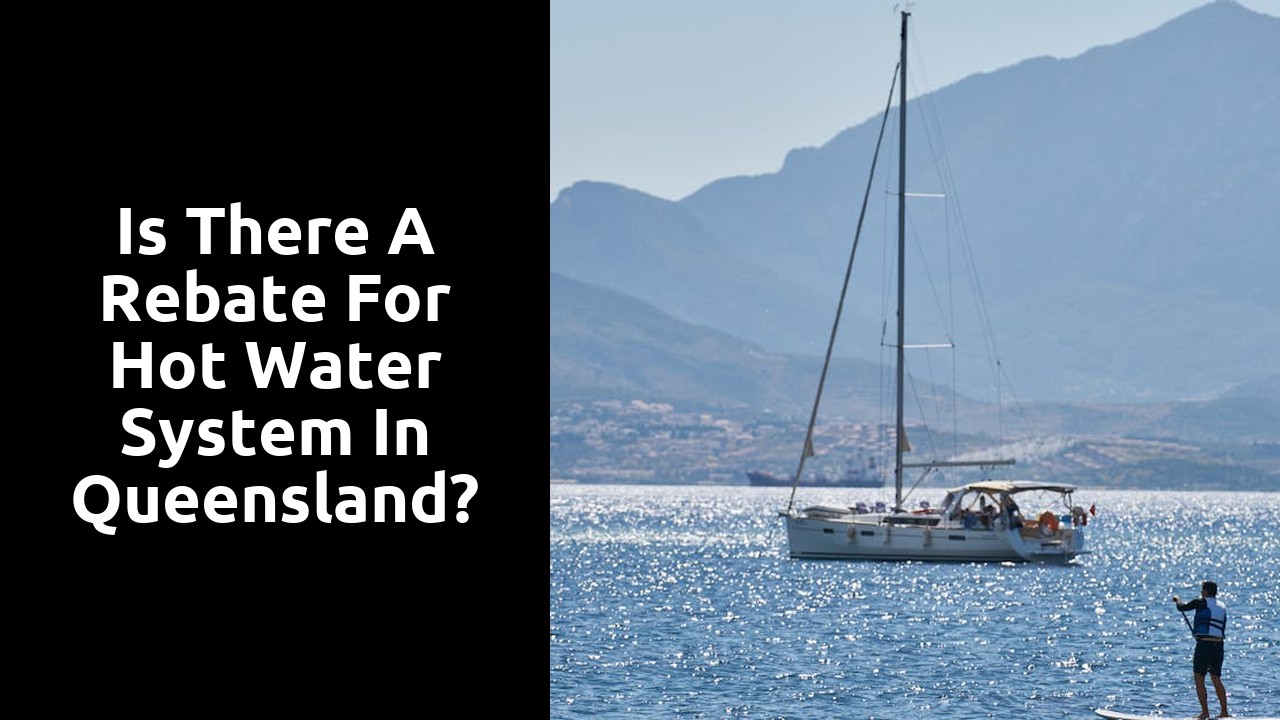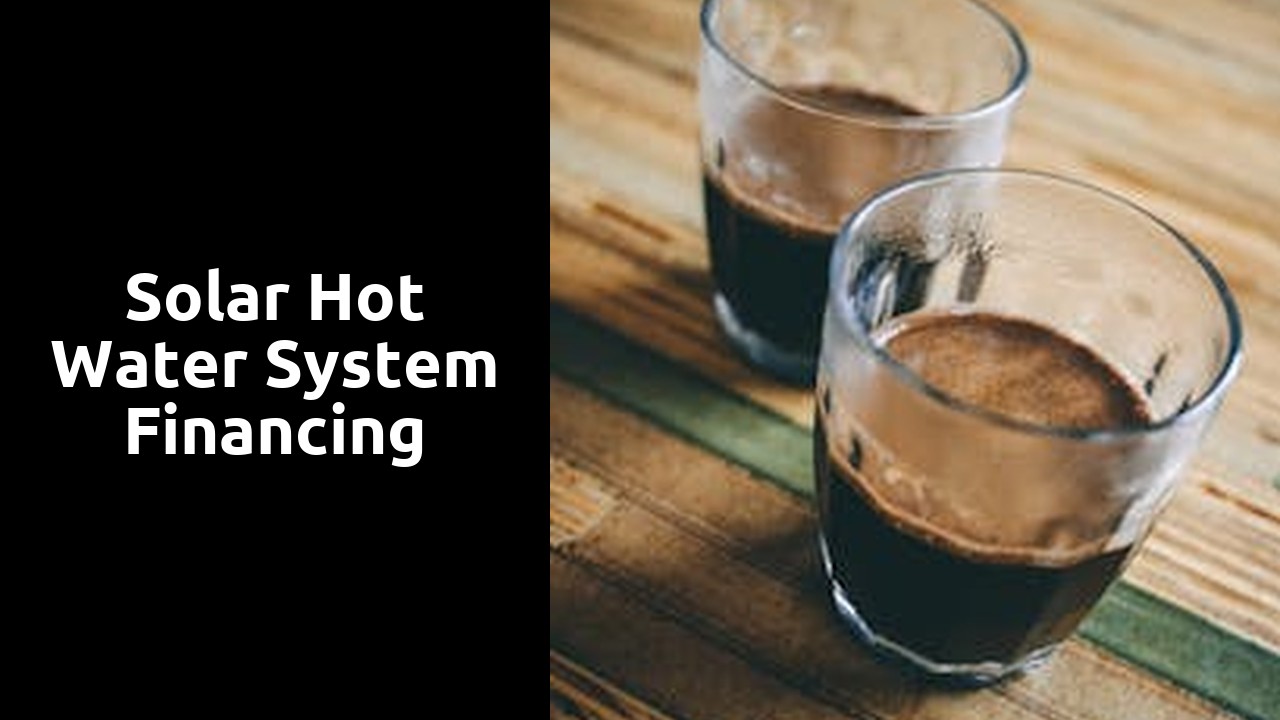
Table Of Contents
Comparing Rebate Programs in Queensland
In Queensland, homeowners have the opportunity to take advantage of rebate programs designed to promote the adoption of energy-efficient hot water systems. The Queensland Government offers various rebates for upgrading to more sustainable options, such as solar hot water systems. Additionally, some local councils and energy providers may also provide incentives to encourage residents to invest in environmentally friendly hot water solutions. These rebate programs aim to not only reduce energy consumption and greenhouse gas emissions but also help residents save money on their utility bills in the long term.
One popular option is the solar hot water system financing scheme, which enables homeowners to access financial assistance when transitioning to a solar hot water system. By comparing the different rebate programs available in Queensland, homeowners can determine which option best suits their needs and budget. It is essential to research and understand the eligibility criteria, application process, and potential savings associated with each program to make an informed decision that aligns with both environmental and financial goals.
Identifying the Best Option for Your Situation
When considering the best option for your hot water system in Queensland, it's essential to evaluate your specific needs and circumstances. One viable choice that often proves to be cost-effective in the long run is investing in a solar hot water system. With ample sunlight available in Queensland, harnessing solar energy can lead to substantial savings on your energy bills. Additionally, the state government and various organizations offer rebates and incentives for installing eco-friendly systems like solar hot water, making it a financially attractive option in the long term. Besides, many financial institutions in Queensland provide solar hot water system financing, making it easier for homeowners to make the switch to a more sustainable and efficient heating solution.
Benefits of Upgrading to an EnergyEfficient Hot Water System
Upgrading to an energy-efficient hot water system can bring about significant benefits for homeowners in Queensland. By investing in a more efficient system, households can enjoy reduced energy bills over time. This is particularly advantageous in a sunny state like Queensland where solar hot water systems can harness abundant sunlight to power the heating process, resulting in lower electricity consumption and cost savings for residents. Additionally, switching to an energy-efficient hot water system can contribute to a greener environment by reducing carbon emissions associated with traditional heating methods. The environmental impact of such a transition aligns with Australia's focus on sustainability and conservation efforts.
In Queensland, there are various rebate programs available to incentivize the installation of energy-efficient hot water systems. These rebates can help offset the initial investment costs and make the transition to a more sustainable option more affordable for homeowners. Moreover, financial assistance options such as Solar Hot Water System Financing may also be available to support residents in upgrading to efficient hot water systems. By taking advantage of these programs and financing options, Queenslanders can not only enjoy the immediate benefits of lower energy bills but also contribute to the long-term sustainability goals of the state.
Understanding the Cost Savings and Environmental Impact
Upgrading to an energy-efficient hot water system can lead to significant cost savings over time. By investing in a more environmentally friendly option, homeowners in Queensland can reduce their energy bills while also decreasing their carbon footprint. Solar hot water systems, in particular, offer a sustainable alternative that can harness the abundant sunlight in the region to provide reliable hot water without relying solely on electricity or gas. This shift towards renewable energy sources not only helps to cut down on operational costs but also contributes to a more eco-conscious lifestyle.
In addition to the financial benefits, opting for a solar hot water system can have a positive impact on the environment. By choosing a renewable energy solution, homeowners can lower their greenhouse gas emissions and lessen their reliance on non-renewable resources. This shift towards cleaner energy sources aligns with Queensland's commitment to sustainable living and reducing its overall carbon footprint. Understanding the long-term cost savings and environmental advantages of solar hot water system financing can empower homeowners to make informed decisions that benefit both their wallets and the planet.
Professional Installation Requirements for Rebate Approval
When seeking approval for rebates in Queensland for your hot water system, it is crucial to ensure professional installation is carried out. Having your hot water system installed by a qualified technician not only guarantees compliance with regulations but also increases the likelihood of rebate approval. Professional installation is a requirement to ensure that the system operates efficiently and meets the necessary standards set forth by regulatory bodies. Getting professional assistance also ensures that all the necessary paperwork is completed accurately and in a timely manner.
In addition to meeting regulatory requirements, professional installation of your hot water system can also open up options for Solar Hot Water System Financing. By enlisting the services of a professional installer, you may be able to access financial assistance programs or financing options that can help offset the initial cost of upgrading to a more energy-efficient hot water system. This can provide a viable solution for homeowners looking to reduce their environmental impact while also saving on energy costs in the long run.
Ensuring Compliance with Regulations
When installing a hot water system in Queensland, it is crucial to ensure compliance with all relevant regulations. The government provides rebates and incentives for households that adopt energy-efficient solutions, such as solar hot water systems. To avail of these benefits, it is essential to adhere to the specific guidelines set forth by the authorities. Moreover, compliance ensures that the installation meets safety standards and does not pose a risk to the environment or public health. Solar hot water system financing is often subject to strict eligibility criteria, including the use of accredited products and installation services. By following these regulations, homeowners can confidently upgrade to a more sustainable and cost-effective hot water solution, while also contributing to the broader goal of reducing carbon emissions in Queensland.
FAQS
Is there a rebate available for upgrading to a hot water system in Queensland?
Yes, there are rebate programs offered by the Queensland government to encourage residents to switch to energy-efficient hot water systems.
How can I compare the different rebate programs available in Queensland?
You can compare the various rebate programs by looking at the eligibility criteria, rebate amount offered, and any additional requirements or conditions attached to each program.
What are the benefits of upgrading to an energy-efficient hot water system in Queensland?
Upgrading to an energy-efficient hot water system can lead to cost savings on your energy bills, reduce your carbon footprint, and contribute to a more sustainable environment.
What are the professional installation requirements to qualify for the rebate in Queensland?
To qualify for the rebate, you may need to ensure that the installation of your new hot water system is carried out by a licensed professional who meets the specific requirements set by the rebate program.
How can I ensure compliance with regulations when applying for the hot water system rebate in Queensland?
To ensure compliance with regulations, make sure to carefully read and follow all the guidelines provided by the rebate program, including submitting the necessary documentation and meeting any installation or product requirements specified.
